Citrus aurantium flower oil is an essential oil extracted from the blossom of the bitter orange tree or Citrus aurantium. The tree belongs to the Rutaceae family, and its extract has a sweet, honeyed, and somewhat metallic scent with a bitter undertone.
The bitter orange tree is mainly grown in the warm regions of Tunisia and is resistant to water, excess cold, and numerous diseases. That is why it is also used as a rootstock. It is indigenous to many countries including Algeria, Spain, Morocco, and Egypt, but the citrus aurantium flower oil from Tunisia and France are believed to be the best.
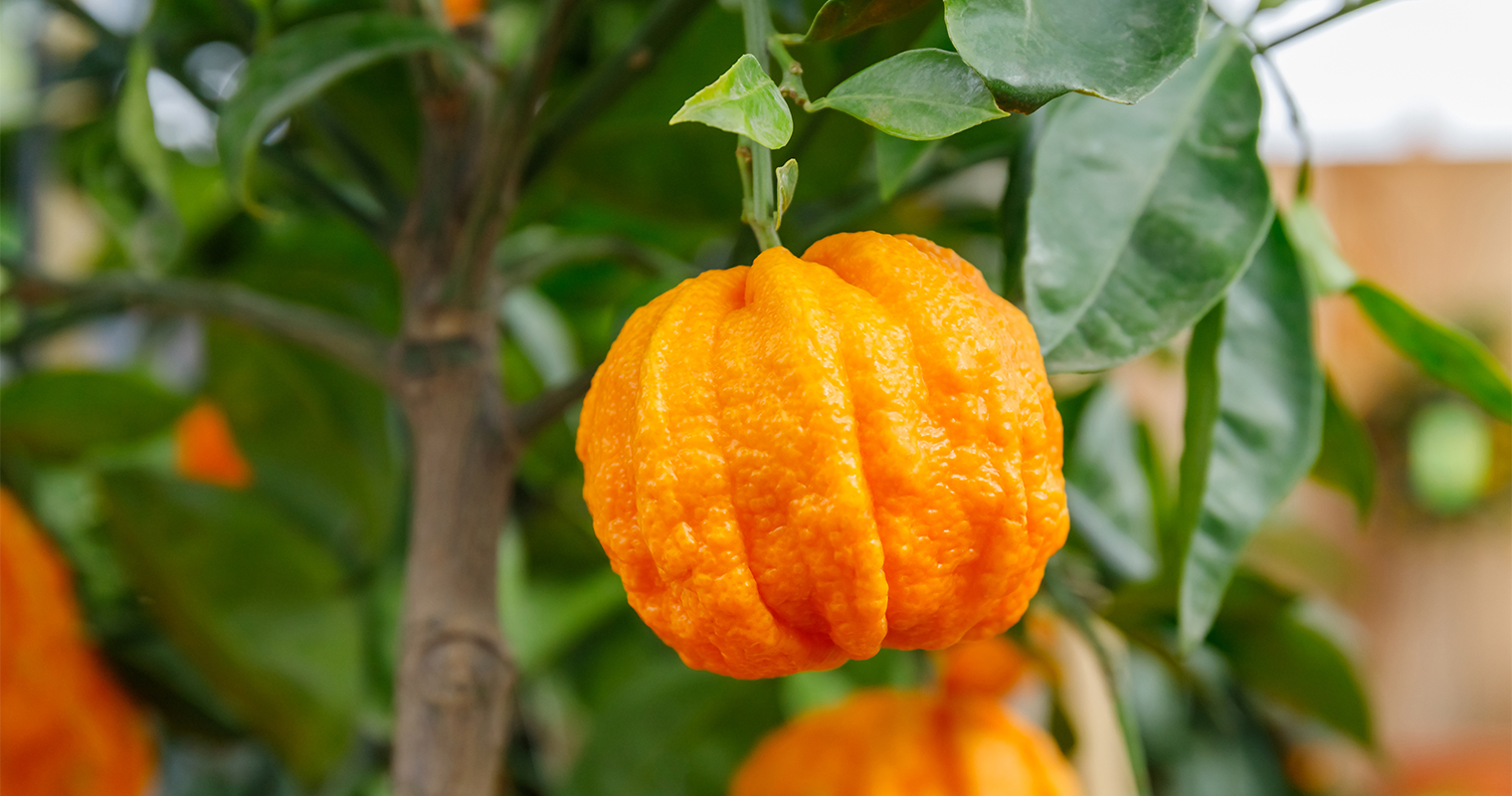
Apart from the bitter orange flower oil, another extract called ‘orange blossom’ also comes from this tree. Both extracts are used in perfumery because of their pleasant scents. However, orange blossom smells sweeter, floral, and warmer than the bitter orange flower oil. The reason these extracts are different despite coming from the same tree is the difference in their extraction methods. Bitter orange is extracted by steam distillation while orange blossom is obtained through a process called enfleurage.
Common name (Neroli oil)
The bitter orange flower oil is commonly known as neroli oil and possesses several therapeutic properties. Evidence shows that it has anti-anxiety, anticancer, anti-obesity, antioxidant, antibacterial, antidiabetic, and pesticidal properties. This essential oil has also shown to have pharmacological effects. Neroli oil, when fresh, is yellowish and turns reddish-brown on exposure to light and air. It is unsuitable for use in therapy if exposed to air or light.
During its extraction via distillation, orange blossom water is produced as a by-product, which is a solution of neroli in water. The by-product also has several uses.
Interesting history of citrus aurantium (bitter orange) flower oil
While the first century familiarized with the oranges, the bitter orange flower oil was not discovered until the late 17th century. Some sources have claimed that the bitter orange oil got recognition after an Italian duchess in the 17th century who used to douse herself in it. Her scent became her identity, and people started calling her ‘Princess Nerola”.
According to the other accounts, the oil is named after Princess of Neroli (near Rome) – Anna Maria de la Tremoille. Nevertheless, inspired from the princess, an Italian perfumer J.M. Farina of Cologne, Germany, introduced a blend of essential oils. It included bergamot, lemon, neroli, lavender, petitgrain, and rosemary and was named as Eau de Cologne. The scent got highly popular and gave birth to the word ‘cologne’ used widely today.
The people of Venice were also very fond of neroli oil because of its therapeutic properties. They used the oil against the plague and other fevers by consuming it as herbal tea and rubbing the distilled water on their bodies. Another ancient use of this oil can be traced to the prostitutes of Madrid, who used this so the customers could recognize them. However, now the bitter orange perfumes signify purity and the orange blossoms are used in bridal headdresses.
Traditionally, the floral water of the bitter orange tree was used by Tunisians for carminative activity in the digestive tract and as a cardiac stimulant. They used the water to calm babies and to make them fall asleep. Whereas, the ancient Egyptian priests and priestesses used the oil in churches just like incense is used today. In the 12th century, Seville, Spain became the major cultivator of the bitter orange, and the name Citrus x aurantium became its common name.
Chemical composition
The major component of the bitter orange flower oil is linalool, followed by d-limonene and linalyl acetate. The chemical composition may vary because of the slight differences in the extraction process, but the overall consistency ratio always remains the same.

For instance, linalool will always remain the major component of the oil regardless of the extraction process. The important components of the oil include 34.4 percent linalool oil, 11.3 percent linalyl acetate, and 10.9 percent limonene. Other compounds present in the bitter orange flower oil include 17.5 percent (E)-nerolidol, 14 percent α-terpineol, 11.7 percent α-terpinyl, and 8 percent (E,E)-farnesol. Notably, the compounds found in the essential oil offer a lot of health benefits, which is why the oil has many therapeutic and medicinal uses.
Linalool:
It is a kind of terpene—a large and diverse set of organic compounds formed by several plants. Linalool plays the role of a fragrance ingredient in personal care products and cosmetics. It is used as a scent in 60 percent to 80 percent of perfumed products and cleaning agents like shampoos, detergents, soaps, and lotions. It also has therapeutic properties, including sedative, anti-inflammatory, and anti-anxiety effects.
This organic compound also has anti-inflammatory properties. However, it can only act as an anti-inflammatory agent in its natural form and not if it is synthetically produced. Specifically, linalool gives the best effects when it is a natural part of a complex organic essential oil.
Linalool can also be used to repel moths, cockroaches, mosquitos, fleas, and fruit flies.
D-limonene:
Limonene is a chemical naturally found in the citrus fruits. It offers many health benefits along with being used as a flavoring in foods, beverages, and chewing gum. It is also used in medicinal ointments and creams to help them penetrate the skin. The compound is also used as a cleaner, fragrance, and ingredient in water-free hand cleansers.
As for its health benefits, d-limonene can prevent the growth of cancer cells. It also helps with weight loss and has antioxidant and anti-inflammatory properties. It can boost the immune system and reduce stress, anxiety, and depression. Moreover, it is a natural pain reliever and can reduce sensitivity to pain. Limonene is known to relieve heartburn and dissolve gallstones as well.

Linalyl acetate:
Linalyl acetate is another major component of bitter orange flower oil. It has anti-inflammatory properties due to which it can have positive effects on the skin. It can also heal rashes and balance natural oils in the skin. Moreover, several studies have shown that linalyl acetate has analgesic properties. It can reduce the duration of menstrual pain and can even relieve menstrual cramps.
Some studies indicate that this compound may have anti-hypertensive effects. It can relax the blood vessels, thus reducing the blood pressure in the patient. It is also known to promote relaxation and improve mood when inhaled. Therefore, essential oils rich in linalyl acetate are commonly used in massage therapy and aromatherapy.
Extraction method
The bitter orange flower oil is extracted from the small, waxy, white flowers of the citrus aurantium tree by steam distillation. While many other extraction methods, such as cold pressing, exist, steam distillation is by far the most common and widely accepted method for large-scale oil extraction.
In the steam distillation method, the plant is placed inside the big containers and exposed to heat by steam or water. The heat disintegrates the molecules, and the essential oil is released. The steam containing the essential oil molecules is condensed and collected in another chamber. As a result, a mixture of water and oil is produced. The essential oil is separated from the condensation water and collected into a bottle. The residual water, ‘Hydrosol’, also contains traces of the oil and has therapeutic properties.
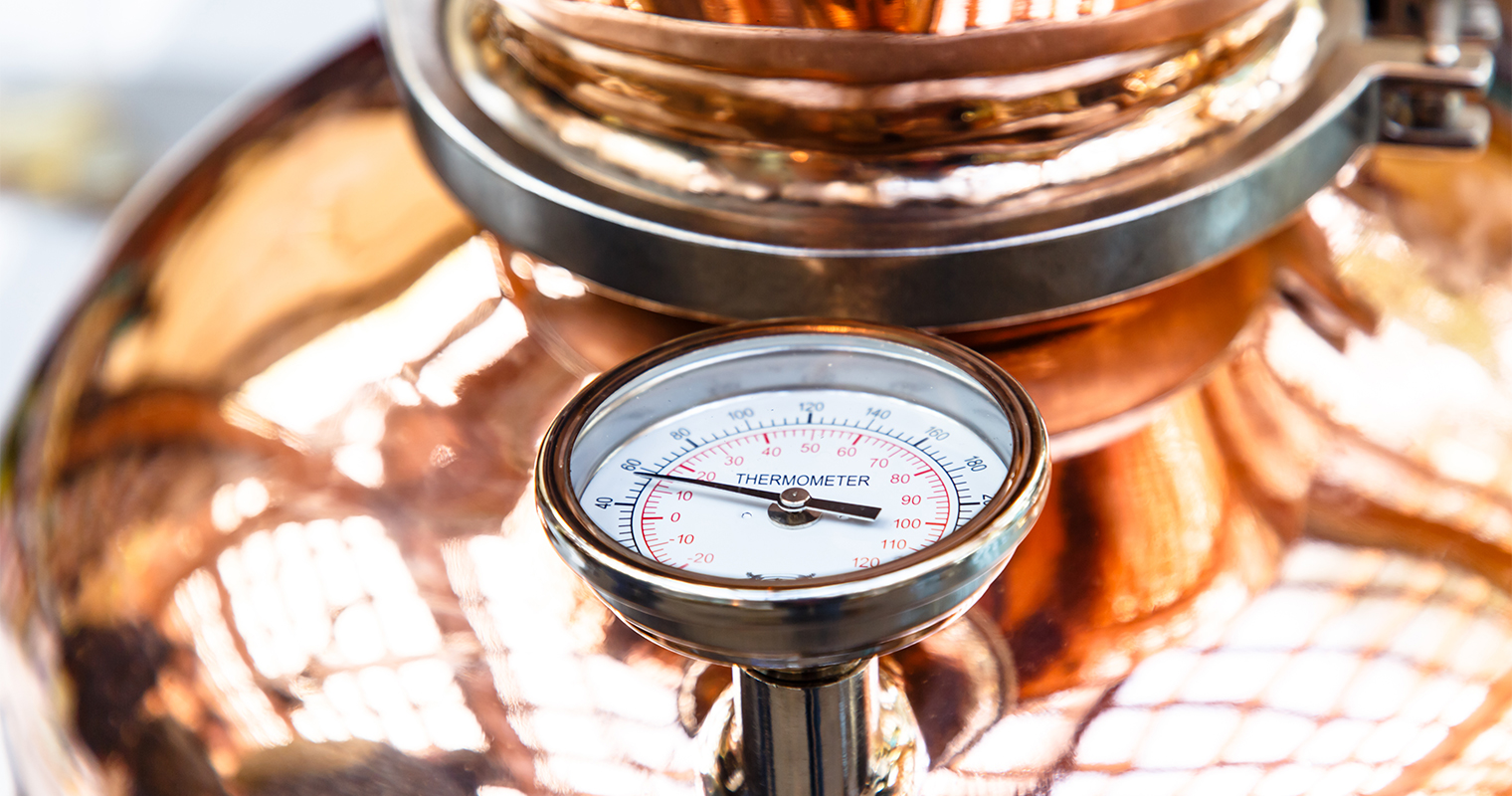
Notably, this method is quite effective in obtaining the best quality essential oils. In this method, the amount of steam is controllable, and the plant material is heated at very low temperatures. In this way, the oil constituents are protected from any thermal degradation. Essential oils tend to become unstable at high temperatures, so it is imperative to keep the temperatures as low as possible during the distillation process.
Uses for bitter orange flower oil
Bitter orange flower oil contains many useful compounds because of which it has many therapeutic and medicinal uses. From being used as a sedative and an anti-inflammatory to acting as a skin tonic, this essential oil serves many purposes. It is used as a fragrance ingredient in perfumes, soaps, and other hygiene products. Moreover, it acts as a flavoring agent in many food items, including beverages. The traditional use of this oil includes the treatment of gastrointestinal tract disorders. Presently, it is also used to relieve tachycardia and rheumatism because of its diuretic action. Here are the other uses of this oil backed by scientific evidence.
1. Antimicrobial properties
Bitter orange flower oil has antimicrobial properties. It is believed to kill bacteria, and this property makes the oil a useful ingredient in antibiotics. According to a study, the bitter orange oil displays a powerful antibacterial activity, stronger than some standard antibiotics.
In an in vitro study, the researchers evaluated the antimicrobial potential of the essential oil against three Gram-positive bacteria, 3 Gram-negative bacteria, three fungi, and two yeasts by zone diameter. They selected these physiologically different microorganisms because of their relevance as food contaminants. The researchers found that the essential oil exhibited good to excellent antimicrobial activities against all these microbes.
Note that the study only took two yeasts and three fungi along with six bacteria. Moreover, no medication should be replaced with any natural remedy without prior consultation with a physician.
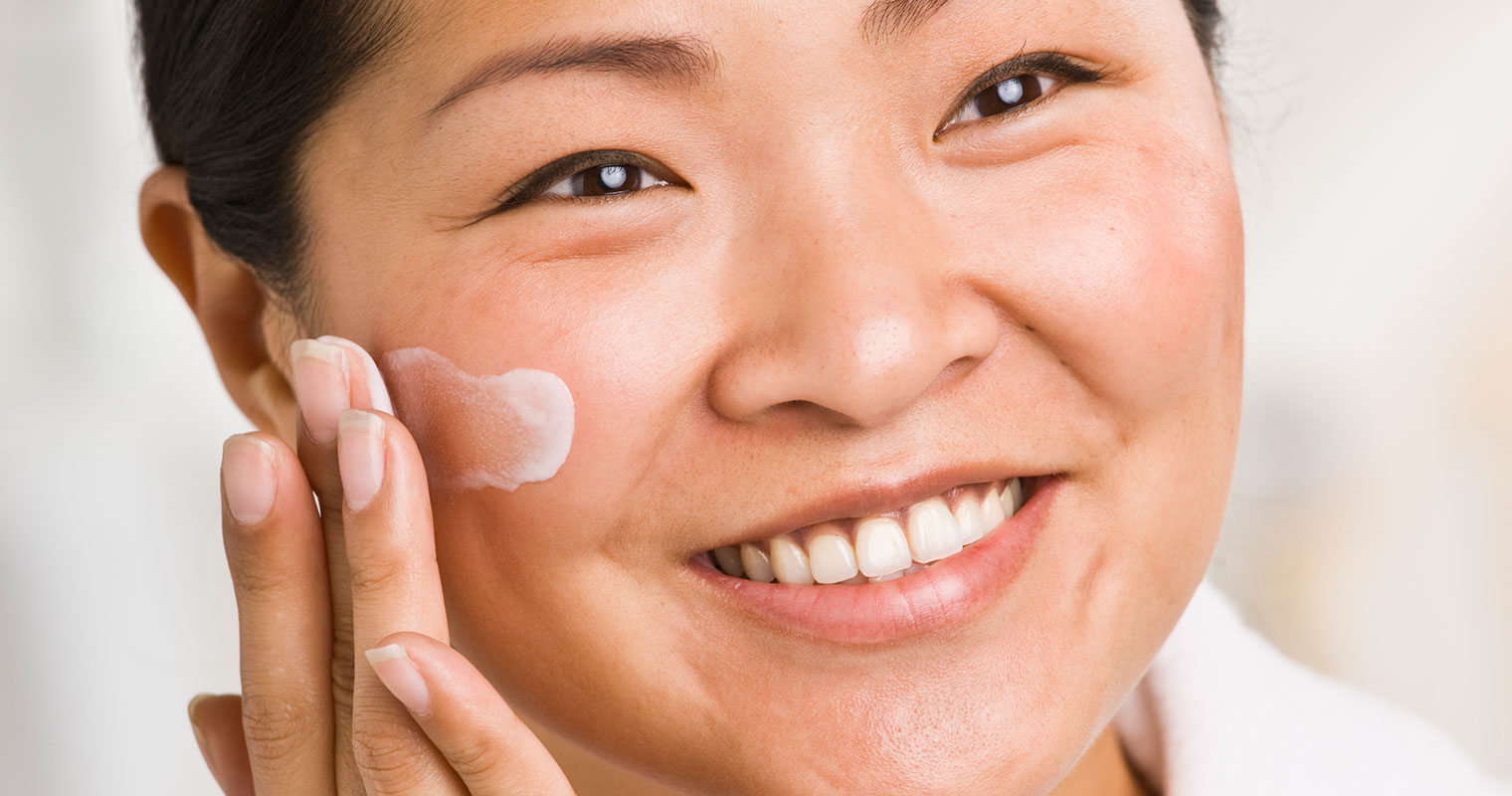
2. Helps alleviate stress, anxiety, and depression
Bitter orange flower oil has numerous therapeutic properties. It acts as a sedative, tonic, aphrodisiac, calmative, cytophylactic, antispasmodic, and an antidepressant. Inhaling this essential oil in aromatherapy can help reduce anxiety, stress, and anxiety-induced depression. When the oil is inhaled, it helps the brain release serotonin while reducing the levels of cortisol, i.e., the stress hormone.
Because of its therapeutic properties, bitter orange oil is a favorite for aromatherapy. It is applied directly to the skin either separately or combined with other essential oils in a spritzer or a diffuser. It can also be poured into one’s bath or into a facial steamer for inhaling. According to some evidence, aromatherapy, when mixed with massage, gives improved results with the mood swings. So, the essential oil can be combined with a carrier oil and used topically during the massage.
Bitter orange flower oil can also help in insomnia, as it acts as a natural tranquilizer. All one has to do is to add a few drops of the oil into a warm bath and take it just before going to bed. It gives better results when combined with lavender, especially in terms of sleep quality.

3. Used for reducing acne
Bitter orange flower oil offers a lot of benefits for the skin. That is why it is included in several skincare products. It is known to relieve acne breakouts or inflamed skin because of its antibacterial and anti-inflammatory properties. It can also accelerate the healing process and helps remove blemishes. In order to relieve acne with neroli oil, mix equal quantities of neroli and lavender. Add three drops of the mixture to hot water in a bowl. Cover the head with a towel and lean over the bowl. The aromatic vapors reaching the skin will relieve the acne and help remove the scars.
Several small studies including one presented in Pakistan Journal of Biological Sciences have shown that bitter orange flower oil has antifungal, antimicrobial, and antioxidant properties. Because of these properties, the oil can prove to be highly useful for alleviating acne breakouts and skin irritation caused by microbes.

Acne and blemish removal regime using BLACK PAINT
To get rid of acne and blemishes, you can adopt a skincare regime that caters to your specific needs. BLACK PAINT offers a vast variety of products for complete regimes catering to a specific skin problem. These skincare products are ample for excellent results for treating acne and blemishes. Use the following products as part of your acne removal routine.
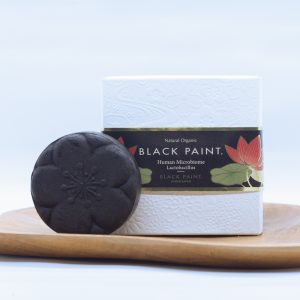 Step 1: Black Paint Soap
Step 1: Black Paint Soap
The first step in any skincare regime is cleansing. You can either use the Black Paint Soap or the Matcha Tea Soap for this purpose. The Black Paint Soap clears blackheads and is useful for deep-pore facial. It contains citrus aurmantium flower oil, which has antioxidant and anti-inflammatory properties and helps deal with acne. Because of its capability to pace up the healing process, it also helps remove blemishes. This soap clears and pulls out blackheads and impurities. Neroli oil content in the Black Paint Soap reduces acne breakouts and balances the skin’s overall health.
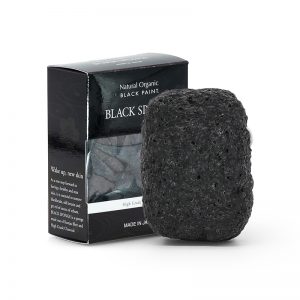 Step 2: Black konjac sponge
Step 2: Black konjac sponge
The second step in this regime is to exfoliate, for which Black Konjac Sponge is available. It is a 100 percent natural facial sponge made from konjac fibers. It extracts blockages from pores and is effective in removing residual oil and dead skin cells. The sponge is very gentle and handles the skin in a delicate manner.
Use the sponge after you have rinsed off the soap from your face. Soak the sponge in cold water and wait till it softens. Gently press it on to skin, especially to the areas with blackheads. Exfoliate, and then drain off water from sponge without wringing it. Just press it between your palms and then dry off with a clean towel. For good hygiene practices, replace the sponge every month
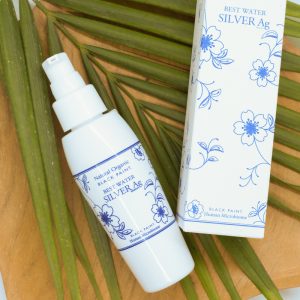 Step 3: Best Water
Step 3: Best Water
The third product to use in this routine is Best Water. It is a toner that minimizes your pores and keeps your skin hydrated. This toning water restores the skin’s natural moisturizing factor (NMF) and prevents moisture loss.
Containing 30 types of minerals, it provides the skin with ample nourishment and renders it soft and supple. Moreover, its citrus aurmantium oil content keeps the skin hydrated. You can use this product after cleansing and exfoliating.
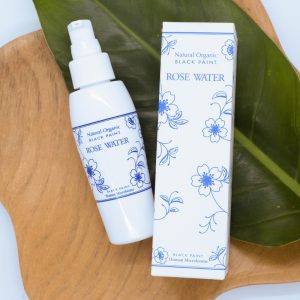 Step 4: Oil Water
Step 4: Oil Water
As you have applied Best Water the first time you wash your face, use Oil Water Rose after you wash your face at another time in the day, let’s say in the afternoon. This way, you’d be able to get the added benefit of better effects from the use of two different products. Oil Water Rose is a facial essence that minimizes pores and regenerates the skin. Containing 2000 stalks of damask rose water and oil, this product protects the skin while tightening the pores because the said contents have anti-inflammatory and pore tightening impact.
Before using, shake the product well (20 times minimum) as it contains no emulsifiers and the water and oil layers are split. Apply two pumps on to the palm and massage your face in 2-3 applications.
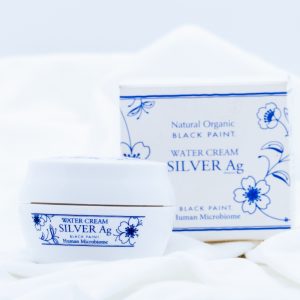 Step 5: Water Cream
Step 5: Water Cream
The next step in this skincare routine is to use Water Cream. It is a dual-function, water-based moisturizing cream for skin protection. It keeps your skin moisturized throughout the day. This product contains bitter orange oil that reduces acne and helps remove blemishes.
Water Cream also contains Argan oil that improves skin metabolism and promotes moisture retention. Containing a blend of seven different types of flower oil and polymeric silicon, it forms a protective veil against external harms. Although you can use it any time of the day, it is better to use it after cleaning your face at night.
4. Used to slow down aging
This essential oil is good for overall skin health, as it increases the absorption of vitamin C, which increases collagen production. It also helps to slow down signs of aging, fading off the dark spots caused by sun damage along with the wrinkles linked to free radical damage. It stimulates cell growth and cellular activity, which has a stimulating and regenerating effect on the skin.
Bitter orange flower oil can also help with the under-eye circles when mixed with almond oil as a carrier oil. This mixture helps strengthen blood vessels. Healthy blood vessels eliminate the possibility of dark circles.
Dark circles appear when the weak blood vessels leak a small amount of blood, which becomes visible as dark circles.
For skincare, the oil can be used in a cream or lotion as well. The oil can fight stretch marks and broken capillaries on the skin while preventing scarring. It helps improve the blood circulation, keeping the skin healthy and encouraging collagen production that augments the skin’s elasticity.
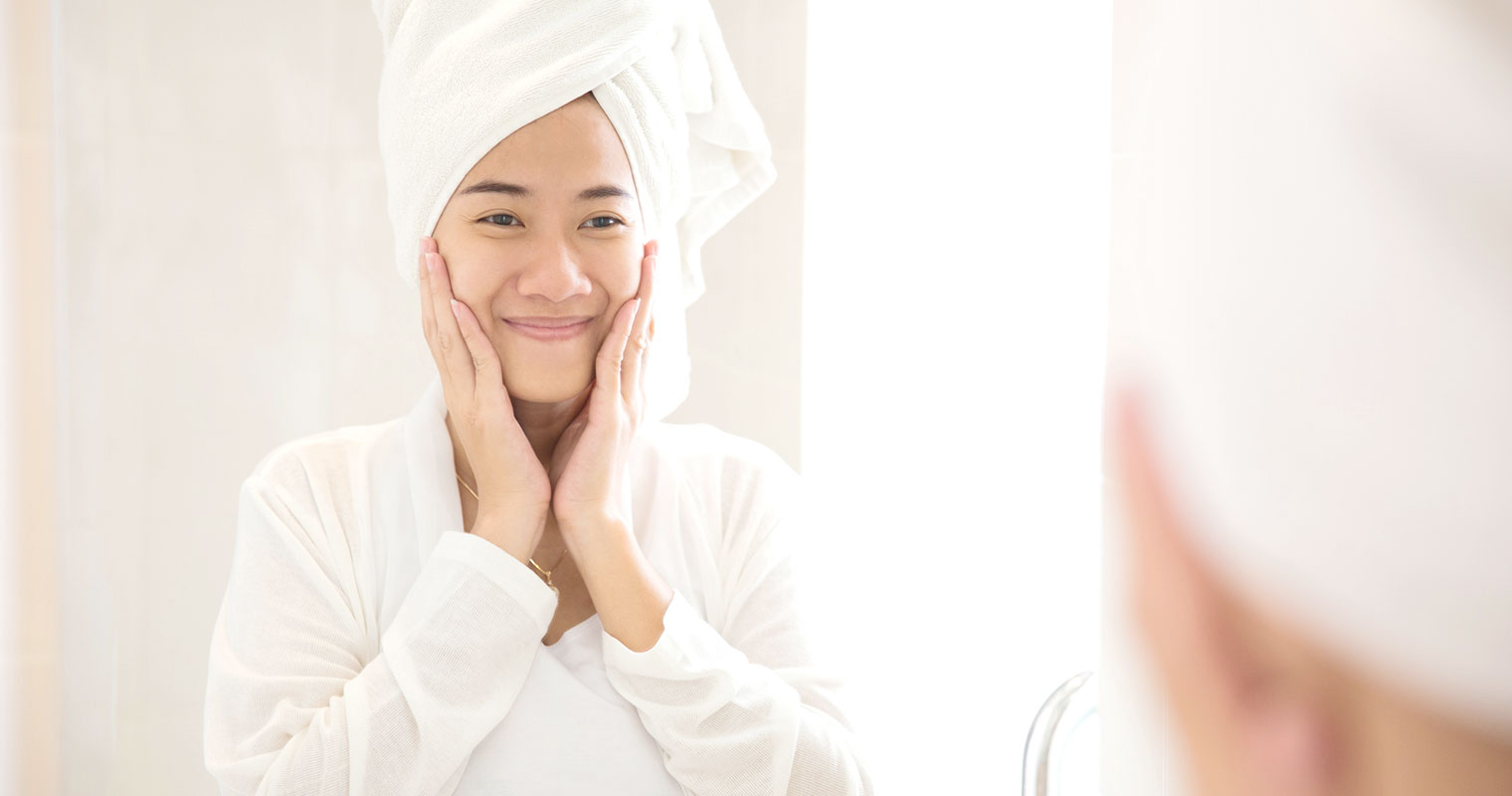
Anti-aging regime using BLACK PAINT
BLACK PAINT has a variety of products that contain natural ingredients and help in slowing down the aging symptoms.
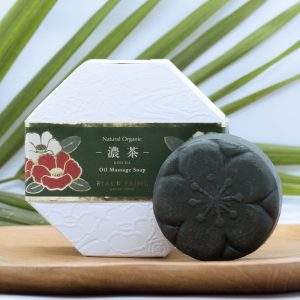 Step 1a: Koicha Tea Soap (can interchange with Step 1b)
Step 1a: Koicha Tea Soap (can interchange with Step 1b)
After using the Vegetable Oil, proceed to soap facial cleansing with either Koicha Tea Soap or White Paint Soap. Koicha Tea Soap is a facial soap that addresses the concerns related to aging. It mitigates the emergence of first signs of aging like fine lines, wrinkles, or pigmentation.
The soap is loaded with antioxidants, taken from Japanese green tea leaves from mature tea plants. It has no artificial ingredients or fragrances. On note, you need to soak the soap in warm water till its surface starts melting. Also, apply the soap directly like painting while avoiding the eye area.
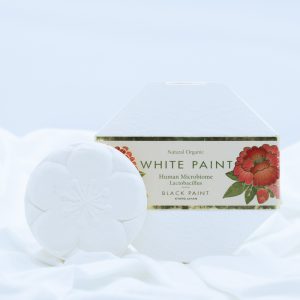 Step 1b: White Paint Soap
Step 1b: White Paint Soap
The second product option for cleansing is White Paint Soap. It is a skin-brightening cleanser that also minimizes pores along with reducing the appearance of wrinkles and fine lines. It contains citrus aurmantium flower oil, which helps a lot in reducing the symptoms of aging by slowing them down.
Just like Koicha Tea Soap, you have to use this product after soaking it in warm water till the surface melts. Apply it directly on the face like painting and massage for 30-40 seconds before rinsing off. Avoid the eye area while using the soap.
Step 2: Best Water
As you are done with cleansing, it is time to use a skin toner. BLACK PAINT offers you Best Water for this purpose with natural ingredients and without any alcohol or artificial addition. It restores the skin’s natural moisturizing factor and provides the skin with nourishment. Its bitter orange oil content reduces the appearance of fine lines and wrinkles while slowing down the other symptoms of aging.
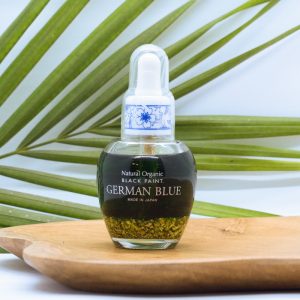 Step 3a: German Blue (can interchange with Step 3b)
Step 3a: German Blue (can interchange with Step 3b)
German Blue is a high-quality facial serum. You can use this product alone for the skin’s nourishment or before Rose Honey. It is best to use this product after you have toned your skin with Best Water.
German Blue is a moisturizing serum that tackles the skin-aging concerns. Its bitter orange oil content slows down the aging effects while reducing their appearance. The product also refills the skin’s natural oil layers.
Mix two drops of German Blue with 2 pumps of Best Water. Apply it on the face through massage while focusing on the affected areas. On note, you can use the product separately, but mixing it with Best Water increases absorption.
Use the product in the morning and night.
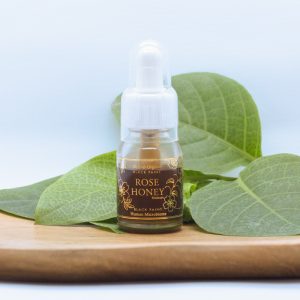 Step 3b (optional): Rose Honey
Step 3b (optional): Rose Honey
You can also use Rose Honey instead of German Blue. This is a probiotic facial serum that nourishes your skin. It improves the skin texture, minimizes pores, and manages the naturally existent bacterial on your skin.
This product contains bitter orange oil, which has antioxidant properties along with skin-tightening effects. It mitigates the appearance of aging signs and keeps your skin refreshed and healthy.
You can also use this product after German Blue to get improved results. Mix one drop of Rose Honey with one pump of Best Water and mix it thoroughly. Apply the mixture on your face with the palms, so the heat of your hands helps your skin in absorbing the mixture.
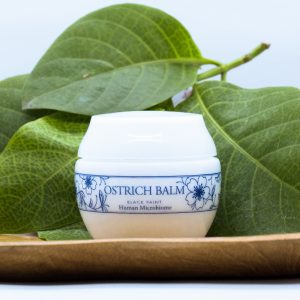 Step 4: Ostrich Balm
Step 4: Ostrich Balm
After you have nourished your skin, it is time to use Ostrich Balm to moisturize your skin. It is a rich moisturizer that repairs dry skin, especially when it has lost its elasticity due to aging. It also helps remove the small wrinkles and can slow down aging signs because of its bitter orange oil content.
Take a bean-sized amount of moisturizer on your palm. Mix it with two pumps of Best Water and apply it directly on your face. Massage with special focus on dry areas like the mouth and around the eyes. You can apply ostrich balm anytime you feel the skin is getting dry.
 Step 5: Water Cream
Step 5: Water Cream
Water Cream is a water-based moisturizing cream that protects your skin from dryness and keeps it moisturized entire day. It improves the metabolism of your skin and retains moisture.
This product contains bitter orange oil that addresses the aging-related concerns. Do not massage this product on your face, just spread it evenly as a smooth layer.
Other uses of bitter orange flower oil
1. Natural pain reliever
Bitter orange flower oil acts as a natural pain reliever. A 2015 study, conducted by Iranian researchers, indicated that the essential oil drastically reduces acute and chronic inflammation. That capability makes the oil a natural remedy for relieving the symptoms linked to type 2 diabetes or rheumatoid arthritis. This oil can also alleviate headaches, especially those induced by stress. Moreover, it provides relief from sore muscles. A few drops of this oil with a carrier oil can help alleviate muscle aches. The mixture’s aroma reduces the rigidity and relieves the stress that is responsible for body pains and aches.
2. Helps with digestion
In ancient times, people used bitter orange flower oil to treat digestive issues. The National Center for Complementary and Alternative Medicine maintains that the Amazonian tribes use the essential oil to alleviate the gastrointestinal problems. Evidence has it that the oil can help relieve stomach problems. One drop of the oil in water or tea can ease a wide range of issues like bloating, diarrhea, constipation, nausea, and menstrual cramps.

3. Reduces seizures
Bitter orange flower oil is known to reduce seizures and convulsions. According to an animal study, the essential oil contains biologically active components that have positive effects on seizures. These components include linalool, nerolidol, linalyl acetate, (E,E)-farnesol, and α-terpineol. Moreover, an Iranian study in 2014 found that the scent of bitter orange flower oil can control seizures in people with epilepsy. It prevents changes in the electrical activity of the brain that is responsible for convulsions. More evidence is required to prove this claim.
4. Helps with menopausal symptoms
Bitter orange flower oil is believed to alleviate menopausal symptoms. According to a 2014 study conducted at the Korea University, the essential oil can help improve the menopause symptoms when used in aromatherapy. The said study found that the oil not only offers relief to the menopausal symptoms but also increases the sexual desire and reduces the blood pressure. The oil tends to achieve all this by acting on the endocrine system and regulating the release of hormones.
Another study indicates that the bitter orange flower oil has positive effects on menopausal symptoms, sexual desire, and stress. The study observed that the effects of neroli oil were more pronounced than almond oil. A small study of postmenopausal women indicates that inhaling the bitter orange flower oil is beneficial for alleviating numerous symptoms pertaining to menopause, like low libido, high blood pressure, and elevated stress.
5. Helps in labor and premenstrual syndrome
Bitter orange flower oil tends to have positive effects on women during labor. A study on women in first-stage labor observed that inhaling the essential oil alleviates the feeling of anxiety and the pain experienced during the first stage of contractions. The women were provided with gauze pads soaked in the oil, which were attached to their collars during labor. These pads were refreshed after every half hour. Nevertheless, the study offered credence to the claims that the essential oil can provide ease during labor.
The oil has also proven to be very useful in relieving the symptoms of premenstrual syndrome (PMS). According to a small study on menstruating college students, bitter orange flower oil tends to reduce a number of PMS symptoms like bad mood, bloating, and pain.
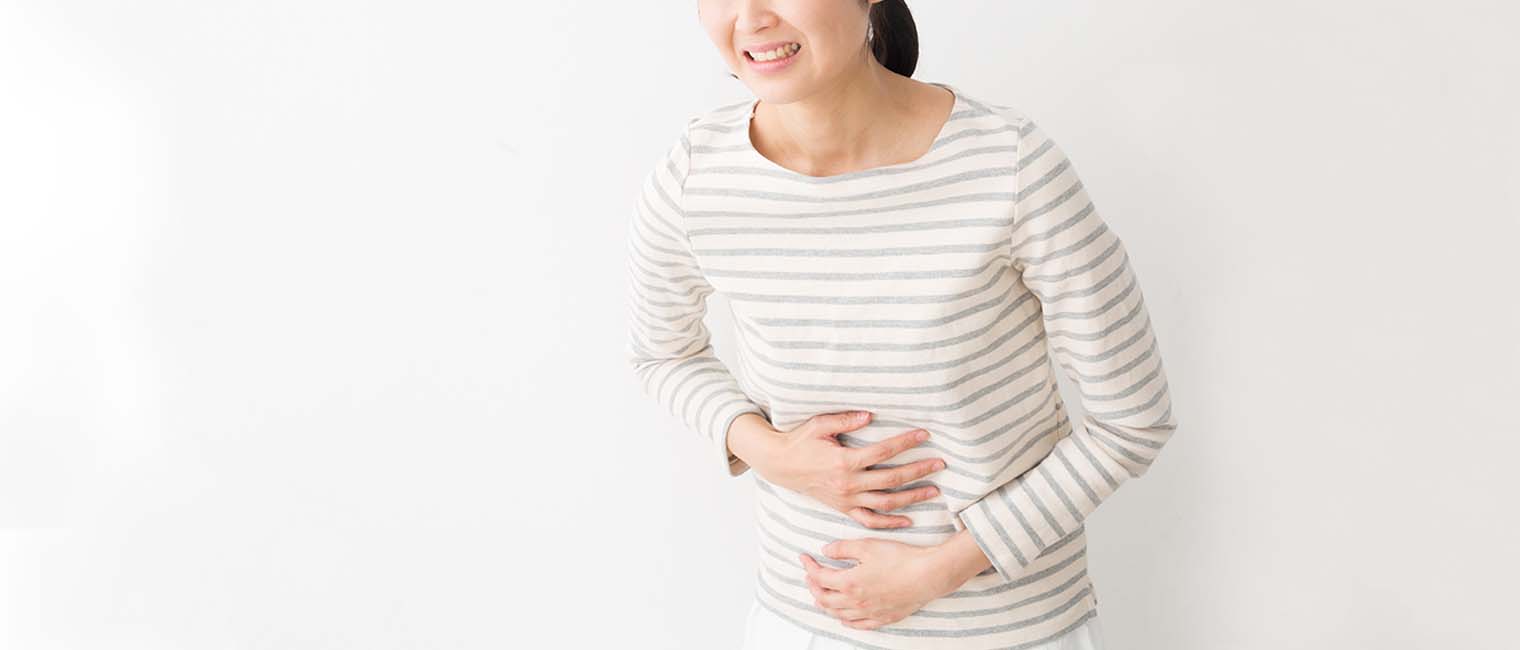
6. Helps with blood pressure and pulse rate
Bitter orange flower oil can help lower blood pressure by reducing cortisol, a hormone responsible for ‘fight or flight’ response. The oil contains limonene that has a positive effect on the autonomic nervous system, which controls heartbeat and breathing. A 5-day intervention study found that the essential oil can lower the blood pressure and the pulse rate. However, the study concluded that the differences were not statistically significant. So far, the claim is not backed by a study, but anecdotal evidence still shows positive effects of neroli oil on blood pressure and pulse rate.
7. Helps reduce inflammation
Bitter orange flower oil has anti-inflammatory properties. It can be used both topically and internally. As for skin treatment, it can help a lot with irritation and inflammation. The oil can also have a positive impact on the inflammatory responses in the organs. According to the Journal of Agricultural and Food Chemistry, the essential oil can have prominent benefits regarding the treatment for inflammation-related diseases.
How to use bitter orange flower oil?
While bitter orange flower oil is deemed as most effective when used in aromatherapy, it can also be applied topically or consumed. Here is how this essential oil should be used for better results:
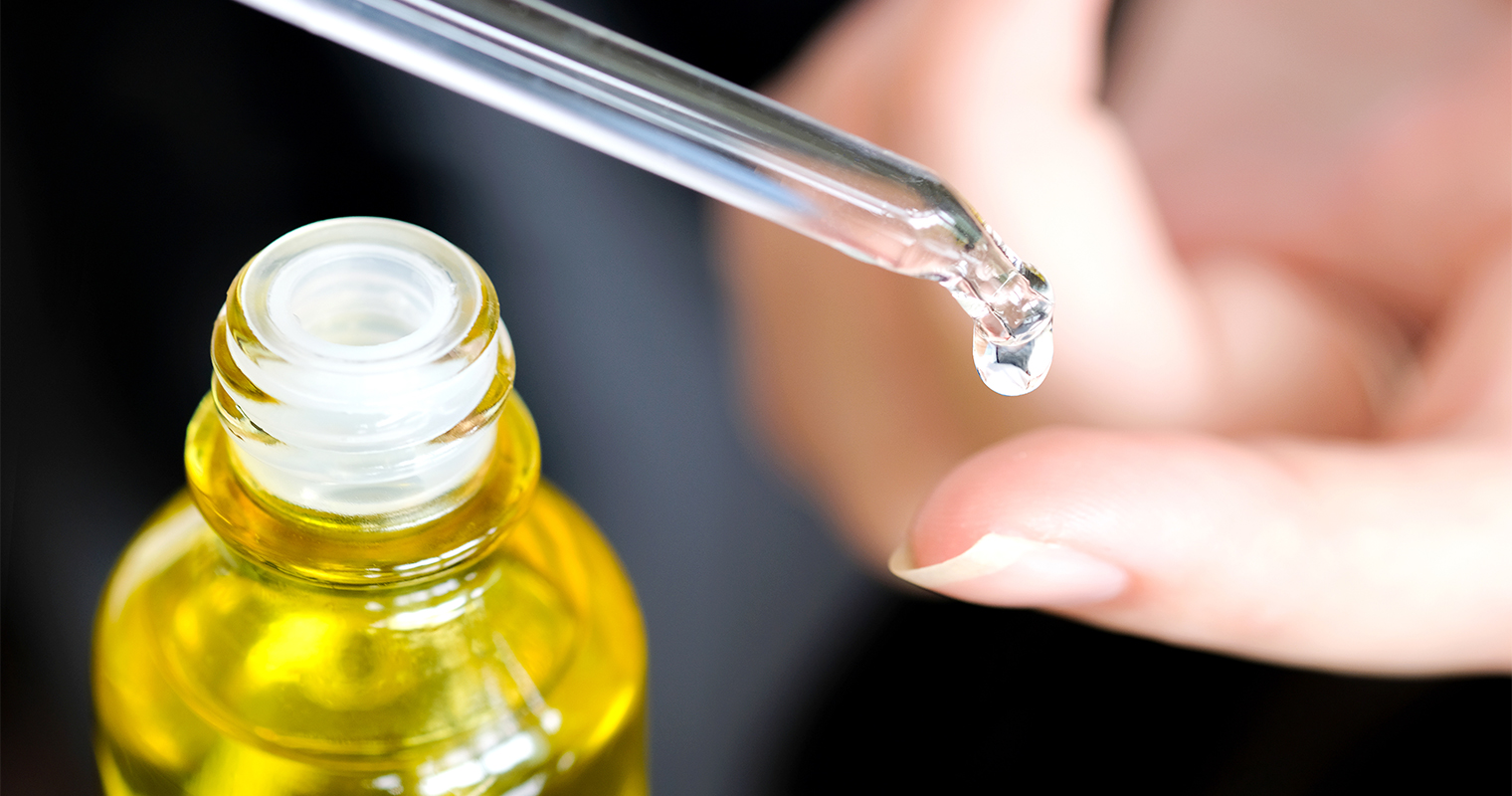
• For dealing with skin problems, add a drop of the oil to a dampened cotton ball and apply directly on the affected area.
• It can also be used topically by mixing with the skin cream or lotion. Just mix a few drops to the cream or lotion, and the products’ capabilities will enhance.
• In order to relieve stress, anxiety, or insomnia, add the bitter orange flower oil to a diffuser.
• To deal with the sore muscles, add a few drops of the essential oil with a carrier oil and massage onto the affected areas. That boosts circulation to the area and reduces soreness.
• To enjoy its scent, add a few drops of the oil to the bath and enjoy its refreshing fragrance.
Carrier oils for bitter orange flower oil
Although bitter orange flower can be applied directly in smaller amounts, it is still prudent to use it with a carrier oil. Carrier oils that blend well with the said essential oil include sweet almond oil, benzoin, geranium, jasmine, lavender, sandalwood, all the citrus oils, ylang-ylang, and rosemary. A few high-quality carrier oils include cold-pressed grape seed oil, olive oil, wheat germ oil, and vegetable oil.
Safety concerns and precautions
Bitter orange oil should be diluted before application. The ratio of dilution should be two to six drops of the essential oil and an ounce of the carrier oil. The oil can also be diluted with some cosmetic base.
Try a patch test first on the skin before using, just in case. If the patch test causes irritation, discontinue oil usage. People having a citrus allergy should not use this oil at all. Moreover, the oil can also have an effect when inhaled via aromatherapy. So, be mindful of people or pets in the surroundings that may not benefit from inhaling the essential oil.
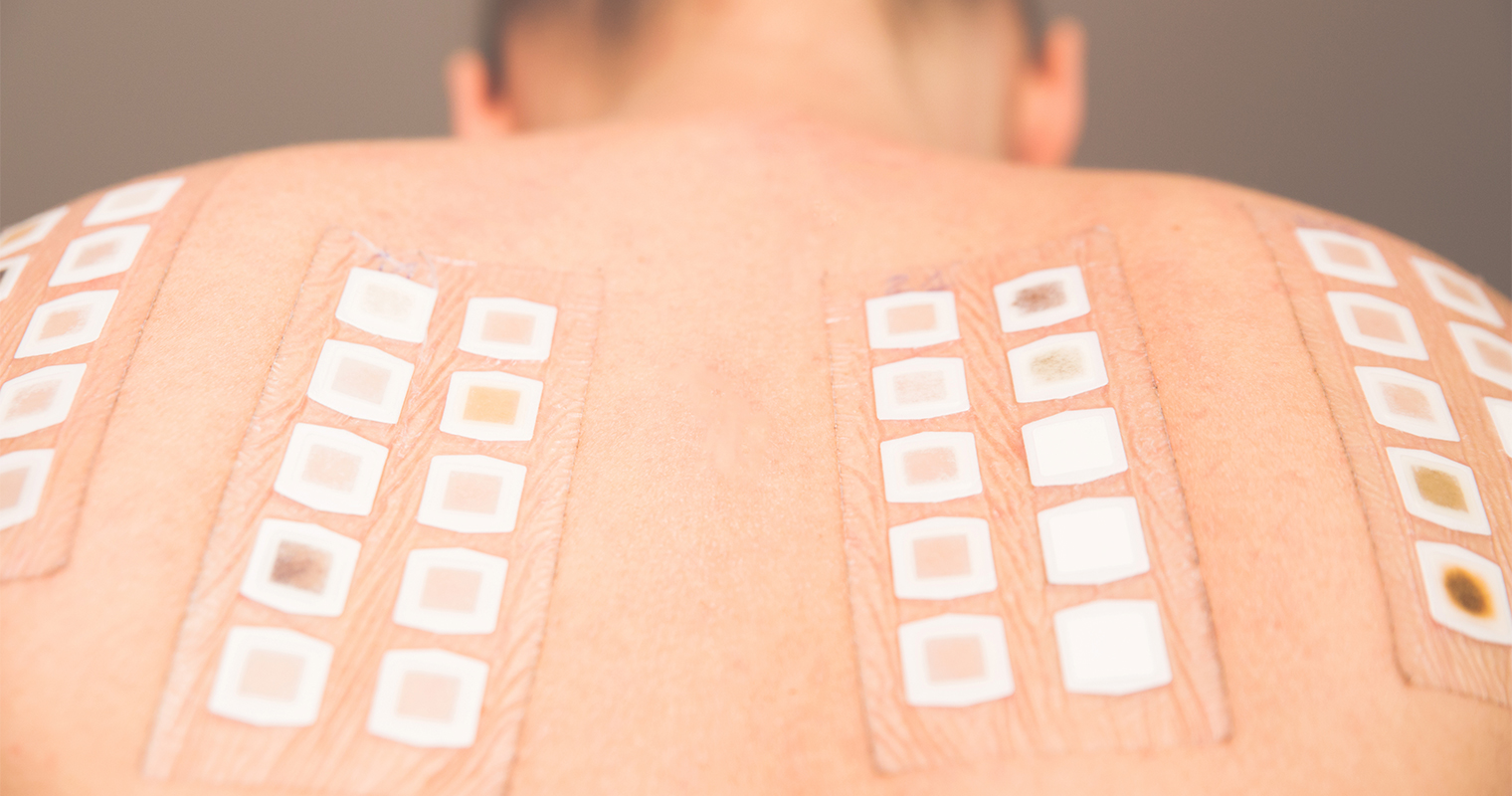
Sun exposure should be avoided while using citrus essential oils. Use sunscreen when going out. Abstain from using this oil if exposure to the sun cannot be avoided or if the person is using a tanning booth. This oil should not be used before consultation with a doctor if the person is pregnant or he/she has liver damage, epilepsy, cancer, or any other medical issue. This oil should not be used undiluted in the eyes or other mucus membranes. Moreover, it should not be taken internally unless the person has consulted with a qualified practitioner.
Special Warning: Bitter orange flower oil contains significant amounts of limonene, which is safe in small amounts. However, there is no sufficient information available to know if it is safe in larger medicinal quantity. Therefore, do not use it as a medicine. Abstain from its usage during pregnancy and breastfeeding. Consult your physician before using bitter orange flower oil for internal use.
References
https://en.wikipedia.org/wiki/Neroli
https://www.tandfonline.com/doi/abs/10.1080/0972060X.2006.10643484
https://www.hindawi.com/journals/omcl/2018/7864269/
https://scialert.net/fulltextmobile/?doi=pjbs.2012.1034.1040
http://aromatherapybible.com/neroli/
https://islandapothecary.com/blogs/ia-journal/99774657-the-history-of-neroli-essential-oil-and-why-we-love-it
https://monq.com/eo/essential-oils/neroli/
https://www.ncbi.nlm.nih.gov/pmc/articles/PMC4082953/
https://www.healthline.com/health/neroli-oil#summary
https://draxe.com/neroli-essential-oil/
https://patents.google.com/patent/CN106190581A/en
https://healthfully.com/279057-how-to-use-neroli-oil-in-skin-body-care.html
https://www.ncbi.nlm.nih.gov/pmc/articles/PMC6073409/
https://essentialoils.co.za/essential-oils/neroli.htm
https://www.webmd.com/vitamins/ai/ingredientmono-1105/limonene







